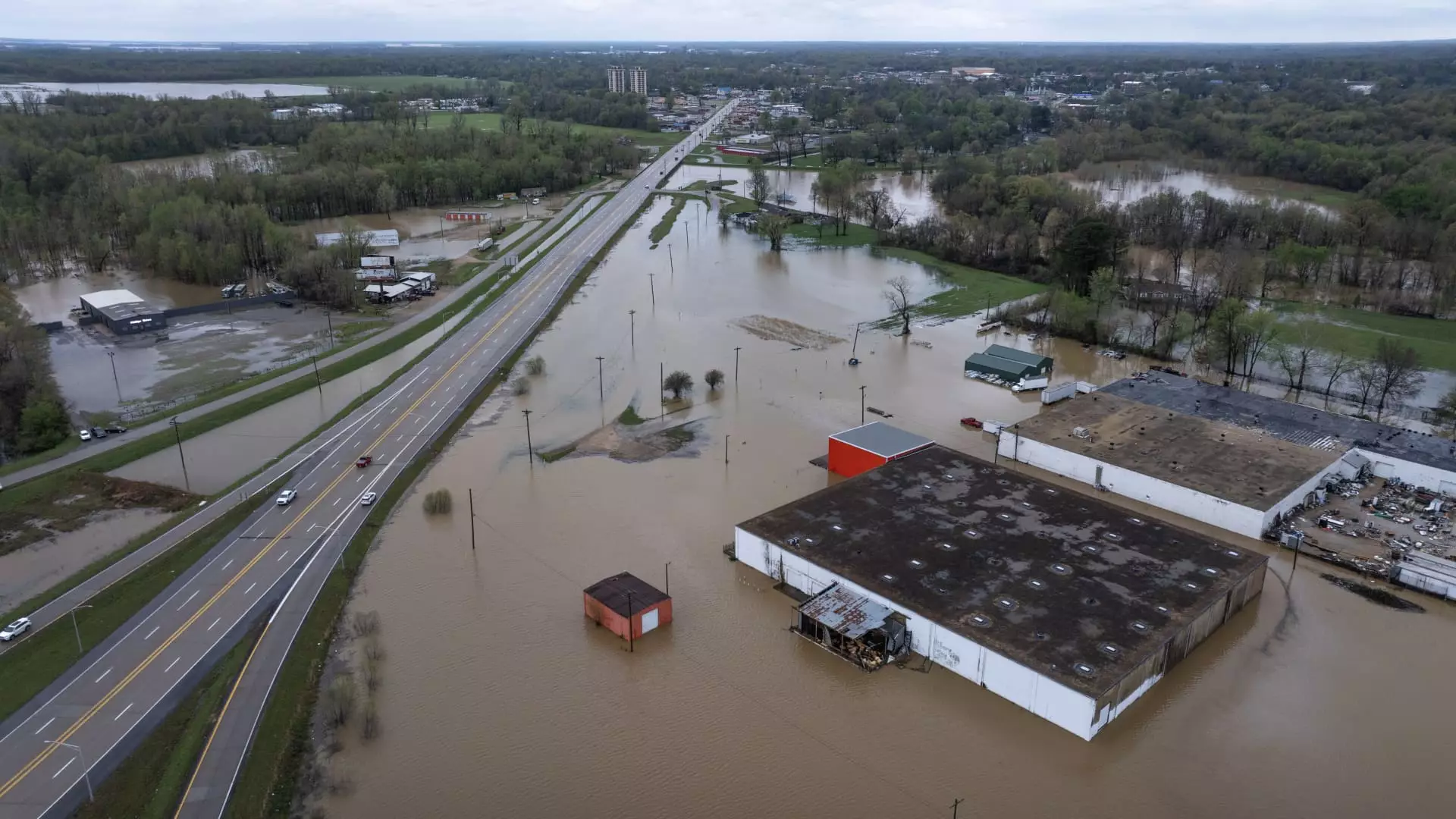The Northeast finds itself in the grips of a crippling deluge following last week’s catastrophic storms, a grim reminder of nature’s untamed wrath. With at least 21 lives tragically claimed, the aftermath is not merely statistics; it’s a tapestry of individual suffering woven through countless communities. In this moment, we must examine not only the weather’s impact but also how climate-related events have begun to reshape the very fabric of our society.
As major cities brace themselves for continued rain and increasing flood risks, we can’t help but feel the stinging urgency of a climate crisis that is no longer a distant prospect but a glaring reality. The death toll from the recent storms serves as a harsh reminder that behind every number lies a story—of families displaced, homes ruined, and livelihoods shattered. The profound emotional and psychological scars of such disasters often go unnoticed amidst the deluge of headlines and news reports.
The Unforgiving Nature of Modern Weather
It’s worth analyzing the sheer magnitude of this recent weather phenomenon. From Arkansas to Kentucky, states have been subjected to a relentless onslaught of heavy rain, tornado warnings, and what local officials have termed “once-in-a-generation storms.” The collapse of infrastructure—a levee breached in Owensboro or power outages in Dawson Springs—paints a vivid picture of our vulnerabilities. As reports flood in of communities devastated and families uprooted, we are forced to confront not just the immediate response but the long-term resilience and recovery strategies that are sorely needed.
This weather pattern reflects broader vulnerabilities in our climate system, exacerbated by the persistent issue of climate change. The record-setting precipitation in Kentucky, where a staggering 15.59 inches fell over four days, is not merely an unprecedented event but a clarion call signaling that we must reevaluate how we build, how we prepare, and how we respond to such crises. If we do not adapt our infrastructure and policies to account for these increasingly frequent extreme weather events, we may very well find ourselves facing the same grim scenarios time and time again.
A Call to Action for Community and Policy
Communities across the flood-laden regions are rallying together, showcasing the remarkable resilience and spirit of human compassion in the face of adversity. Fire department officials in Anderson County report heroic rescues, and local communities step up in ways that often go unnoticed amidst the chaos. Yet, it becomes painfully apparent that while we can rejoice in human resilience, the systematic failures in disaster preparedness and climate policy reflect an urgent need for governmental accountability.
Why, despite prior warnings and recent historical events, do we still find ourselves unprepared? The answer lies in a complex matrix of political indifference and shortsightedness that has plagued our climate discourse. The voices demanding action are often drowned out by short-term political gain and outdated ideologies. Our infrastructures require funding, our communities need support, and above all, we need leaders willing to prioritize sustainability and safety over political posturing.
Looking Forward: Redefining Our Relationship with Nature
The rolling storms and rising waters are more than just weather events; they are harbingers of an urgent need for change. As we observe the meteorological chaos enveloping the Southeast, we must not merely react but proactively redefine our relationship with nature. By investing in sustainable urban planning and resilient infrastructure, advocating for green energy, and fostering community engagement, we can prepare for future challenges.
The upcoming weather patterns are a stark reminder that our world is shared and interconnected. Every flood, every storm, echoes the urgent call to unify our discourse around climate change with actionable solutions. Politicians must transcend partisan divides to forge a common path that prioritizes both immediate relief and long-term sustainability. As we confront the aftermath of this latest storm, let us not forget that those who are most affected are, ultimately, our collective responsibility. It’s time for action, not just words; the time to start building a more resilient future is now.

Leave a Reply